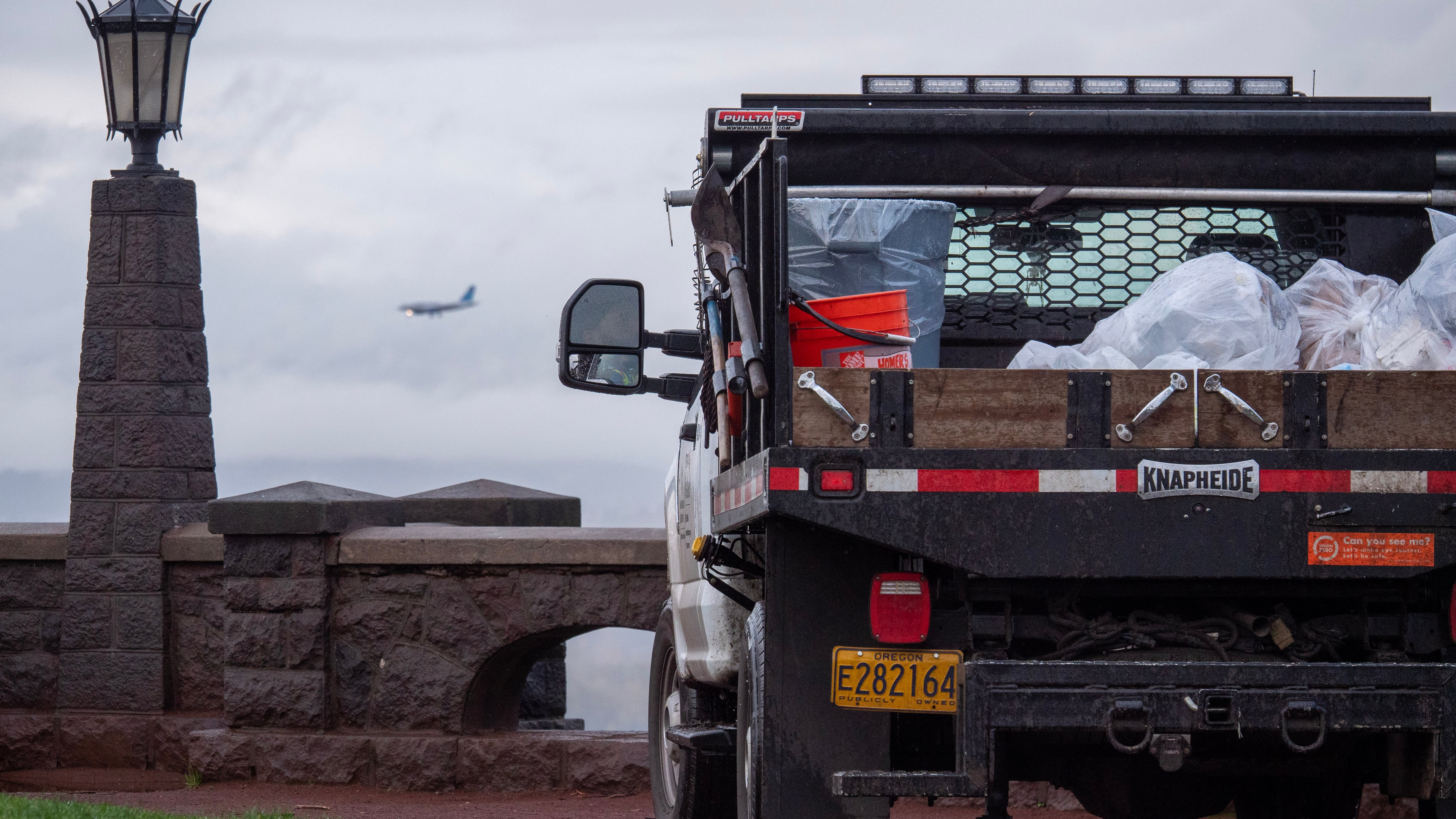A city that has struggled with unsightliness in recent years is on the brink of a new setback: The workers who maintain trash cans and pick up syringes are preparing to strike this week, saying conditions are too dangerous and their pay hasn’t kept up with inflation.
They are among 600 workers for the city of Portland who say they’ll walk off the job as soon as Thursday, after nearly a year of failed contract negotiations with the city.
Laborers’ Local 483, which represents workers across city bureaus that provide basic services like making street repairs, maintaining public trash cans, monitoring parks, and overseeing wastewater treatment plants, is demanding higher pay and updated contract language about workplace safety. It’s also asking that the city better protect its frontline workers from potentially violent and dangerous encounters in public spaces.
“We’re asking for higher wages, safety and respect. Our folks have been working through the pandemic and other related crises and we perform essential services,” says union field representative James O’Laughlen. “And we have to deal with the hazards of deteriorating safety conditions. It’s not sustainable for our members.”
O’Laughlen says union workers—in particular those who monitor public places like parks—regularly pick up hypodermic needles and are sometimes verbally and physically threatened or attacked. Perhaps the most prominent employees represented in this contract negotiations are park rangers, who have been asked to take a larger role providing security for Portland Parks & Recreation amid widespread camping and gun violence.
At issue in the contract negotiations: a cost-of-living increase. The union is asking for a 3.5% wage raise across the board and market adjustments for the past two years that are higher than what the city has so far offered.
The city’s most recent offer includes a 1% retroactive raise across the board for the last fiscal year paired with a 5% cost-of-living adjustment, another 1% increase beginning July of this year and a 5% cost-of-living adjustment for 2023.
The last time a contract impasse drew this close to a strike, in February 2022, the city cut a deal with the District Council of Trade Unions with hours to spare.
But it’s not clear what the city will do in the unusual event that a strike actually happens. City officials say they’re developing a contingency plan—but didn’t offer specifics about who would perform duties like keeping parks clean.

